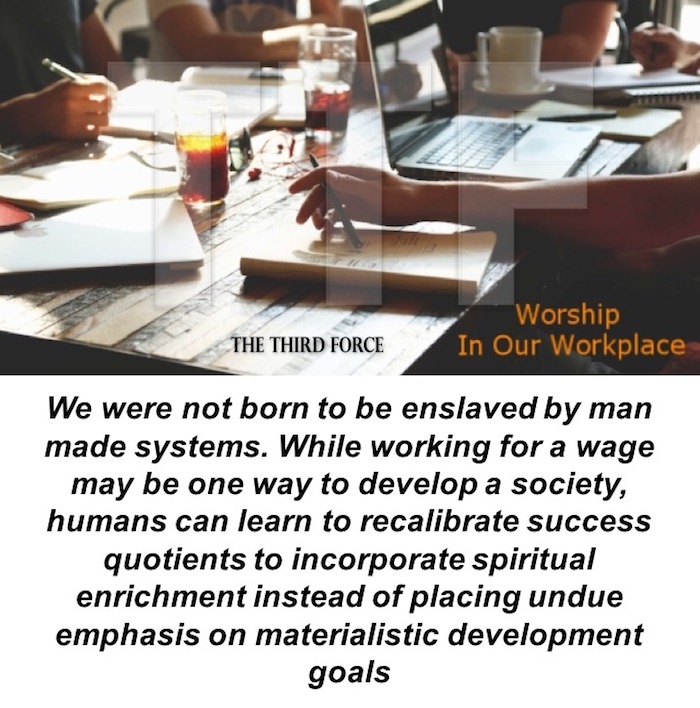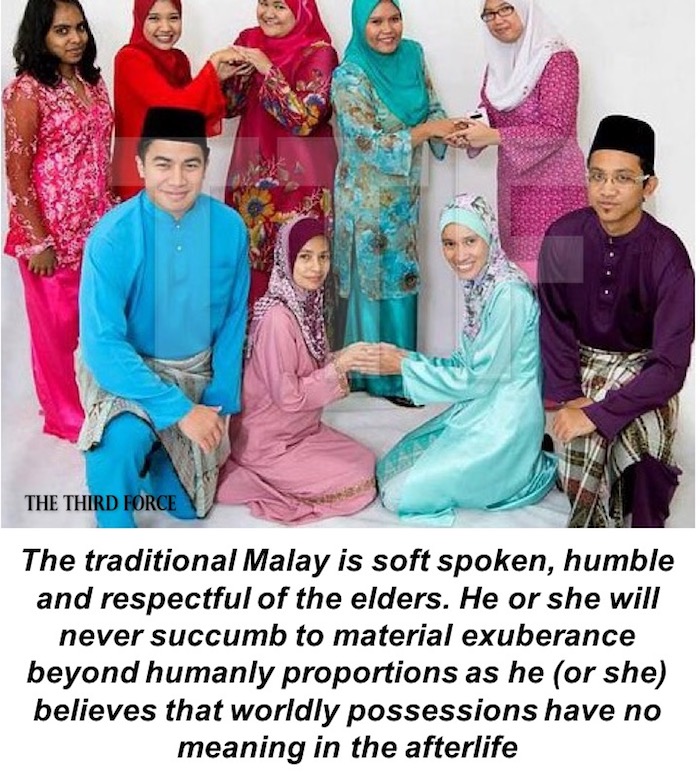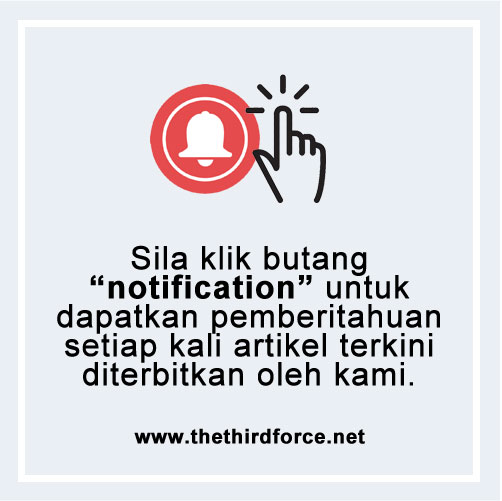
“When Mahathir first announced the core tenets and ideals of Vision 2020 during the tabling of the Sixth Malaysia Plan, he couldn’t stress enough on the need for there to be “social wellbeing and psychological balance” to achieve a “self-industrialised nation” status. From where I stand, we’re right on track, as are the Malays who seem less dependent on government assistance and more positive in their outlook towards life”
THE THIRD FORCE
Dr Mahathir Mohamad’s ideas and methods are old school. As you probably already know, the means to accomplish anything – be it managing the economy, the country, a company or even that weight problem you’re struggling with – evolve with time, as do discoveries and conventions. One convention that seems to have gained traction among psychologists today is the consensus that your wellbeing ultimately determines your productivity.
And that’s no fallacy.
Years of research has proven that people who do what they’re interested in are the ones trekking that extra mile. They perform way off regular charts and strive towards self-enrichment more than they do gratification. While that may seem common sense to some, you’d be surprised how many subscribe to old schools of thought that advocate “loyalty to the workplace above loyalty to oneself.” Even religion teaches one to be at peace with his (or her) inner self to attain higher levels of consciousness and productivity.

Experts at the United Kingdom (UK) based New Economic Foundation (NEF) are singing along these lines as they push for a reduction in work hours from 40 to 30. They’re saying that it improves our wellbeing, family life, friendships and journey towards success. And get this – they insist that it helps reduce carbon emissions which ultimately translates into better productivity. Yes, a less polluted environment begets a vibrant society that pushes the productivity bar the next level.
Now, that’s thinking out of the box.
It is this line of thinking that prompted nurses at a day-care centre in Gothenburg, Sweden, to switch from an eight-hour workday to a six-hour schedule for exactly the same wage. The move was part of a two-year experiment that found irrefutable evidence of drops in sick leaves and improved care for the sick. It really hit the spot insofar as the notion “if one can’t help thyself, how would one be expected to help others” goes.
On a spiritual note, societies worldwide have traditionally been indoctrinated to “serve the state” in the name of progress and development. But what that development entails is very much in focus as governments generally tend towards physical and fiscal goals. At the end of the day, the question of why one needs to overwork takes precedence when one considers that the majority of work schemes benefit only the financial elites.
And this is no joke.
The loan dependent banking system we’ve grown accustomed to ultimately chains us to a web of subservience that shifts the focus from spiritual wellbeing to physical pursuits. You’re literally selling your souls to the banks each time you fall prey to “lifestyle and wellbeing” fads the greater industrial complex is fuelling. As you strive for that faster Mercedes or that bigger Ford, you’re simply getting sucked into shallow pursuits that bring about extreme work stress. Often, you’re working harder not to enrich yourself spiritually but to get into an income bracket that makes the E300 Benz affordable to you.
Take a look at Japan, the very nation Mahathir once exclaimed was the epitome of success. When introducing the Look East Policy, he asserted that the secret to the country’s prosperity lay in its labour ethics, morale and management ideals. Thirty-six years and several recessions later, the very same Japan is struggling with economic stagnations and the more than cryptic “karoshi” culture leading to suicides and death from overwork!

Currently, one in five workers in the land of the rising sun is at risk of dying from overwork with hundreds of deaths being reported yearly. A white paper on the karoshi culture revealed that Japanese spent much longer hours in the office than their counterparts in other countries. Yet, the highly-paid engineer downtown Tokyo could never afford the luxury of owning a small house or even the low-cost apartment unit he yearned.
As he relentlessly strives for what he can’t own, his health suffers as does his relationships. The robotic pace with which he works didn’t just get there by chance – it was the result of the very “management ideals” Mahathir spoke of in 1981, ideals that subliminally indoctrinated the idea that loyalty to one’s workplace had to come before loyalty to oneself. Today, a typical Japanese will rather die for his boss than he would for his wellbeing.
Is that what Vision 2020 is all about?
If it is, nobody told me about it. When Mahathir first announced its core tenets during the tabling of the Sixth Malaysia Plan, he couldn’t stress enough on the need for there to be “social wellbeing and psychological balance” to achieve a “self-industrialised nation” status. From where I stand, we’re right on track, as are the Malays who seem less dependent on government assistance and more positive in their outlook towards life.
And they’re achieving this by preserving a culture that demands moderation and restraint. It is this very culture that allowed Dato’ Seri Najib Tun Razak to bring the country where it is today without us succumbing to the karoshi phenomenon. But Mahathir insists that the Malay culture posed a stumbling block to the attainment of Vision 2020.

These attitudes have inadvertently taught Malaysians to value life itself instead of becoming slaves to the system. While we’re not exactly an ideal culture, we’re most certainly not robotic like the Japanese, who value workplaces more than they do their homes. This inherent flaw in their psyches was brought about by a system that placed undue emphasis on “labour ethics,” the very ethics Mahathir praised when introducing Vision 2020 to Malaysians.
Seriously, if we let him have his way, we’ll be seeing a lot of dead Malays in the years to come.



